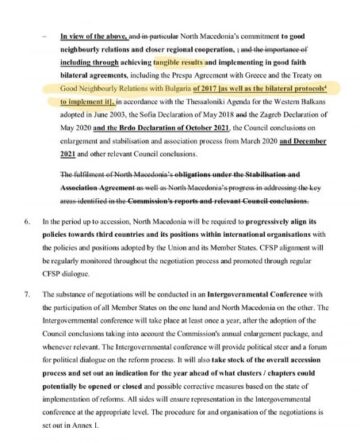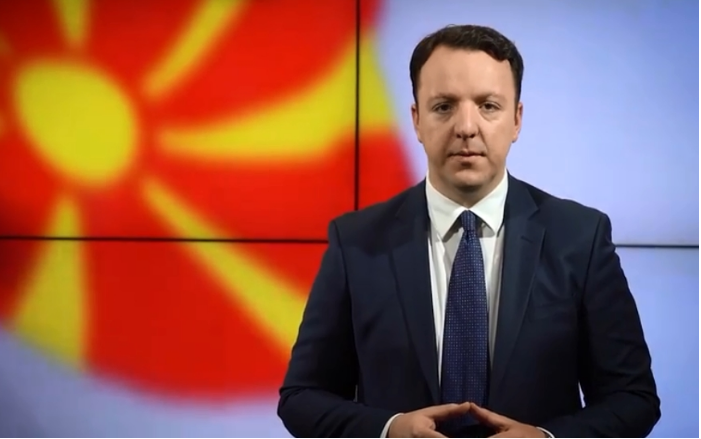It is genuinely an essential issue, an issue that burdens the Macedonian EU integration processes for 20 years now. First, in 2000 the state signed the Stabilization and Association Agreement, in 2005 Macedonia became a candidate country for EU membership, along with Croatia. Today, Croatia is not only a member country, but it already switched to the Euro as its currency and joined the Schengen system while we, regretfully, cannot even start the negotiations. It began with the name issue with Greece, now it is the agreement with Bulgaria, and the country’s progress toward EU integration is constantly blocked, often irregularly, by breaking basic human rights and dignity. I think there is no other instance when basic human rights, the right to self-determination, and the right to use one’s native language were so systematically and thoroughly attacked -also Aleksandar Nikolovski, vice-president of VMRO-DPMNE and an MP said in his Wednesday address to the Macedonian Pariament’s Committee on European Integrations.
Nikolovski also stressed that it is obvious now that Macedonia will have to follow a two-pronged path to the European Union.
“I think we should stop with the mimicry and accept that the Macedonian journey to the EU will follow two tracks: one will be the negotiations with the EU – if they ever start – within the established framework, and the other will be the negotiations with Bulgaria. We have been raising the alarm about this for a long time, but the authorities chose to hide behind false fairy tales”, Nikolovski said.

He pointed out the humiliation that Macedonia suffers by having to change its history or force its people to change their national identity just because someone asked for it, which is obviously going to happen in the near future.
“The demand for amendments to the Constitution we are discussing now is not the end of it, but a beginning of the long list of demands that will follow. It is true that other countries are also debating their history, but none of those countries were forced to change their history in order to move forward in EU integration, as is the case with Macedonia now. That is because the work of the mixed committee on historical issues is integrated into the EU negotiations framework and, in practice, this means accepting the extremely biased committee conclusions or otherwise, the country will remain mired in the current situation. That is the reason why 85% of ethnic Macedonians rejected the so-called French Proposition. To put it in perspective, that is more than the turn-out on any kind of elections we held since the independence. And this kind of Bulgarian behavior, the policy of threats and pressure will only bear more resistance among the Macedonian people, since no one wants to be humiliated, to create their perception about themselves – the truth about themselves and their ancestors – under a foreign diktat”, Nikolovski concluded.





Comments are closed for this post.